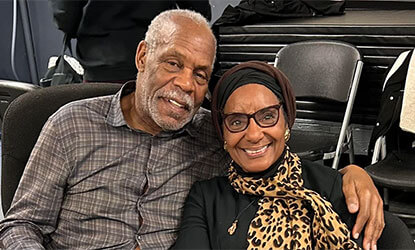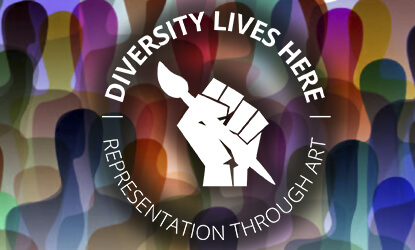Life, Death, Life Again: Children Sentenced to Die in Prison, which shares the stories of people sentenced to die in prison for violent crimes committed as children and a victim’s son who chose to lead with forgiveness, will be performed on December 5 at Monmouth University’s Pollak Theatre at 6:15 PM. The performance is free and open to the public.
“We are thrilled to bring this important conversation about punishment, redemption, and forgiveness to Monmouth University,” said Johanna Foster, Director of the Sociology Program at Monmouth University.
From 2014 to 2017, playwright Elizabeth Weill-Greenberg of Highland Park, New Jersey interviewed by phone, mail, or email people who committed violent crimes as children and were sentenced to die in prison, as well as victims of violent crime who forgave the person who killed their loved one. Four of those stories are presented in the documentary play, Life Death, Life Again: Children Sentenced to Die in Prison.
“Life, Death, Life Again invites us into the lives of those directly impacted by extreme sentencing,” said Dan Swern, producing director and co-founder of coLAB Arts. “This play shows the raw humanity of those sentenced to die in prison, and forces us to ask ourselves: Is this justice?”
In 2005 the US Supreme Court banned death sentences for children in Simmons v. Roper. The Court issued the decision in Graham v. Florida in 2010, which banned life without parole sentences for juveniles convicted of non-homicide offenses. Then in 2012, in Miller v. Alabama, and in 2016, in Montgomery v. Louisiana, the Supreme Court ruled that all of the people serving mandatory life without parole sentences for crimes committed as juveniles must be resentenced.
The performance on December 5 will be immediately followed by a panel discussion with the audience.
This performance is produced by coLAB Arts, and is presented by The Monmouth University Center for the Arts with the Department of Political Science and Sociology, Department of Criminal Justice, and the School of Social Work at Monmouth University. The performance is sponsored by the Anti-Poverty Network of New Jersey and Juvenile Law Center.
The performance is approved for two social work CEU credits. Tickets are free for the public and can be reserved at: http://www.colab-arts.org/calendar/2018/9/25/life-death-life-again-in-monmouth.
The play features the stories of:
Sean Taylor: When Sean was 17, he shot at a house and killed one of the occupants. In 1990, he was sentenced to life in prison but was released in 2011, after then-governor Bill Ritter commuted his sentence. During his incarceration he left the gang he had joined at 14, and committed himself to transforming his life. (Available for an advance interview.)
Tiffany Taylor: Tiffany and Sean met as children, then drifted apart, reconnected after his release and later married. (Available for an advance interview.)
Bill Pelke: When Bill was 38-years-old, in 1985, his grandmother was murdered by four teenage girls. One of the girls, Paula Cooper, who was just 15 at the time of the crime, was sentenced to death. While Bill first supported the sentence he came to forgive Paula and worked to overturn her death sentence. In 1989 her sentence was commuted to 60 years in prison. She was released in 2013. Tragically, she killed herself in 2015. In 1993, Bill helped start Journey of Hope, From Violence to Healing, an organization made up of murder victim families who oppose the death penalty. (Available for an advance interview.)
Joe: Joe has an active legal case and is still incarcerated so his name and certain identifying details have been changed. At 14, in the late 1990s, he shot the homeowner of a house he had broken into. He was quickly arrested and, at 15, he was sentenced to life in prison. He was one of the thousands affected by the Montgomery v. Louisiana decision.
Marsha Levick: Marsha co-founded the Juvenile Law Center in 1975. She co-authored the lead child advocates’ amicus briefs in key recent United States Supreme Court cases, including Roper v. Simmons (juvenile death penalty unconstitutional under the Eighth Amendment); Graham v. Florida (life without parole sentences for juveniles convicted of non-homicide offenses unconstitutional under the Eighth Amendment); J.D.B. v North Carolina ( a juvenile’s age is relevant to the Miranda custody analysis under the Fifth Amendment); and Miller v. Alabama (mandatory sentences of life without parole for juveniles convicted of homicide offenses unconstitutional under the Eighth Amendment). Marsha also served as co-counsel in Montgomery v Louisiana, where the Supreme Court ruled Miller retroactive throughout the country. (Available for an advance interview.)
###





